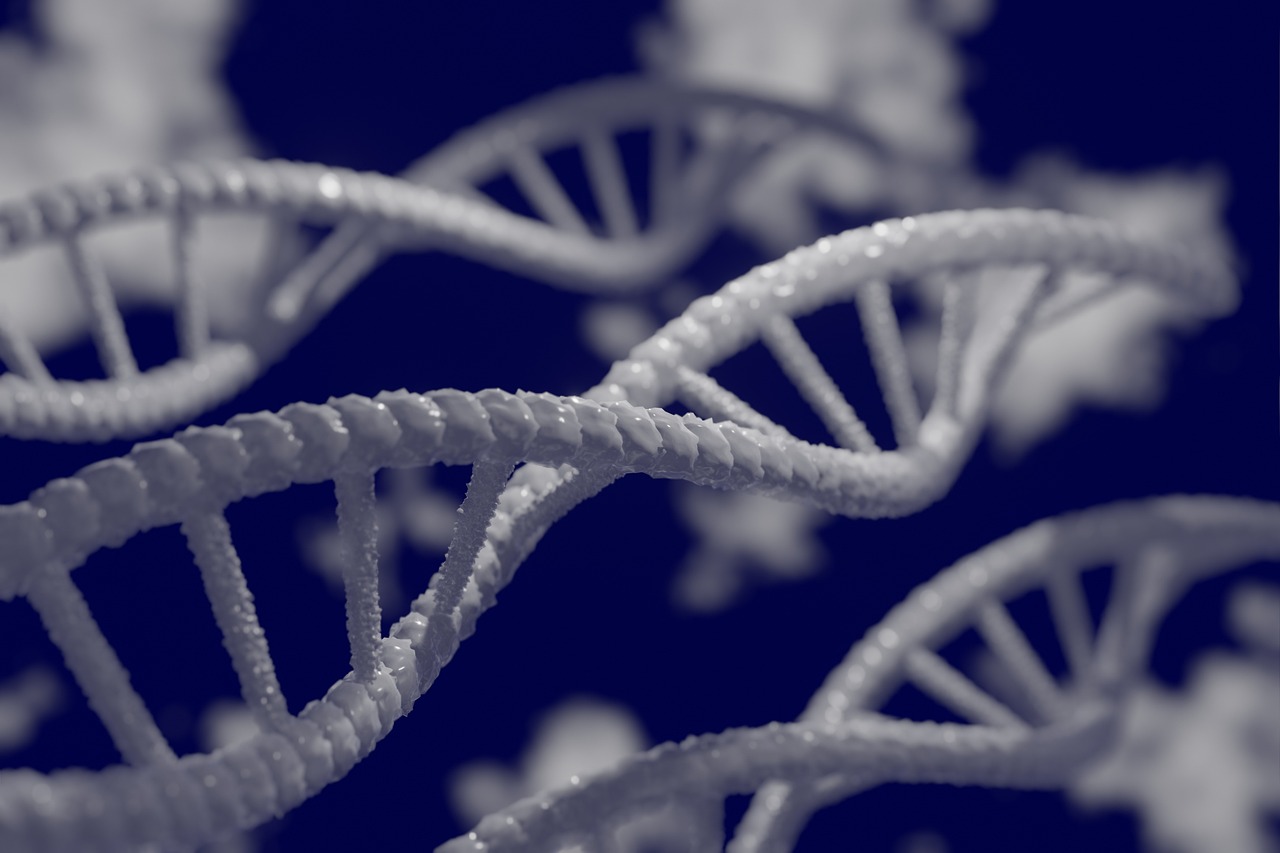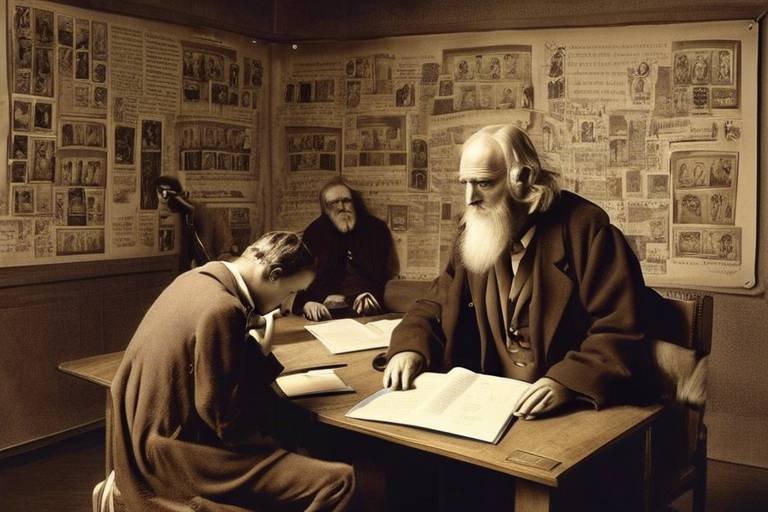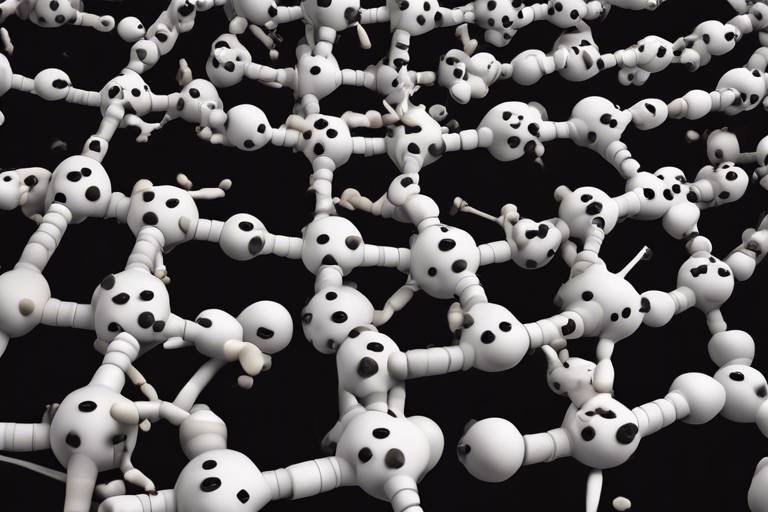Challenges and Feasibility of Immortality - A Philosophical Analysis
The concept of immortality has fascinated humanity for centuries, sparking debates and discussions across various disciplines. From ancient myths to modern science fiction, the allure of living forever captivates our imagination. But what does it truly mean to be immortal? Is it a blessing or a curse? In this exploration, we will delve into the multifaceted challenges and the feasibility of achieving immortality, considering ethical, biological, and existential dimensions that complicate this age-old quest.
When we think about immortality, ethical implications immediately come to the forefront. If we could extend life indefinitely, what would that mean for our society? Would it lead to a utopia where everyone thrives, or would it create a dystopia filled with inequality and resource scarcity? The potential for disparity is significant; those with access to life-extending technologies could live for centuries, while others may not have the means to secure their own longevity. This raises crucial questions about resource allocation and the moral responsibility of those who hold the keys to life extension.
Moreover, consider the societal impact of an immortal population. With an ever-increasing number of individuals living for hundreds of years, how would we manage resources such as food, water, and energy? Would we have to impose strict regulations on birth rates? The very fabric of our society could shift dramatically, leading to potential conflicts and ethical dilemmas that are hard to navigate.
While the idea of living forever is enticing, the scientific limitations we face are profound. Our understanding of human biology reveals a complex interplay of factors that contribute to aging and mortality. For instance, our genetic makeup plays a pivotal role in how we age. Research is ongoing to uncover the mysteries of genetics and their influence on longevity, but the reality is that we are bound by biological constraints that may never be fully overcome.
Genetics is a significant player in the aging process. Scientists are investigating various genetic factors that could potentially lead to extended lifespans. For example, certain genes have been linked to longevity in specific populations, offering a glimpse into the biological pathways that govern aging. As we delve deeper into this field, we may uncover ways to manipulate these genes to enhance lifespan, but the ethical implications of such modifications cannot be ignored.
One of the most fascinating aspects of genetics is the role of telomeres—the protective caps on our chromosomes that shorten as we age. When telomeres become too short, cells can no longer divide, leading to aging and eventual death. Understanding how to maintain or even lengthen telomeres could unlock the secrets to extending life. Researchers are exploring various interventions, including lifestyle changes and potential therapies, that could mitigate the effects of telomere shortening.
Another exciting frontier is the use of CRISPR technology for genetic modification. This revolutionary tool allows scientists to edit genes with unprecedented precision, raising the tantalizing possibility of altering the very genes that contribute to aging. However, this potential comes with a host of ethical concerns. Should we play God and modify our own genetic makeup in pursuit of immortality? The implications of such actions could ripple through society, affecting not only individuals but also future generations.
Beyond the biological and ethical considerations, we must also reflect on the psychological aspects of immortality. Imagine living forever—what would that really feel like? For many, the idea of eternal life can evoke fear and anxiety. The burden of endless existence might lead to a sense of purposelessness. How would our identities evolve over centuries? Would we still find joy in the same things, or would the monotony of eternal life dull our experiences?
Immortality raises profound existential questions that challenge our understanding of life itself. One of the most pressing inquiries is the meaning of life. If we were to live forever, would our lives hold the same significance? Would the pursuit of our goals and dreams change if we had all the time in the world? Or would the infinite stretch of time render our aspirations meaningless?
The quest for immortality challenges traditional views on the meaning of life. Many argue that it is our mortality that gives life its richness and urgency. Without the pressure of time, would we lose our drive to achieve and create? The delicate balance between life and death shapes our experiences, and the thought of eternal existence could alter our understanding of purpose in profound ways.
Mortality, in its transient nature, imbues life with meaning. It influences our motivations, relationships, and appreciation of existence. The fleeting moments we share with loved ones become precious precisely because they are limited. If we were to eliminate death, we might inadvertently diminish the value of our experiences. Life's impermanence is what makes it beautiful, and the thought of immortality forces us to confront the very essence of what it means to be human.
- What are the main challenges to achieving immortality? The primary challenges include ethical dilemmas, biological limitations, and psychological impacts.
- Can genetics play a role in extending human life? Yes, ongoing research is exploring genetic factors that influence aging and longevity.
- What are telomeres, and how do they relate to aging? Telomeres are protective caps on chromosomes that shorten as we age, affecting cell division and longevity.
- How does CRISPR technology relate to immortality? CRISPR allows for precise genetic modifications, which could potentially alter aging-related genes.
- What existential questions arise from the concept of immortality? Key questions include the meaning of life, the value of mortality, and the psychological effects of living forever.

The Ethical Implications of Immortality
The concept of immortality is not just a tantalizing dream; it poses significant ethical dilemmas that society must grapple with. Imagine a world where death is no longer an inevitability but a mere option. What would that mean for our social structures, our resources, and our very humanity? The pursuit of eternal life raises questions about fairness, justice, and the distribution of life-extending technologies. Would only the wealthy be able to afford immortality, creating a society divided by life expectancy? Or could advancements in science democratize access to these technologies, allowing everyone a chance at eternal existence?
One of the most pressing ethical concerns is the potential for inequality. If immortality becomes available through advanced medical interventions, it’s likely that those with financial means would be the first to benefit. This could lead to a society where the rich live indefinitely while the poor are left to face the natural cycle of life and death. Such a scenario could exacerbate existing social divides and create a new class of "immortals" who hold power and privilege over those who cannot afford the same luxuries. In essence, immortality could transform from a personal aspiration into a societal crisis.
Moreover, the question of resource allocation cannot be overlooked. If humans were to live forever, how would we manage the planet's resources? Would we face a struggle for food, water, and space? The Earth is already grappling with overpopulation and environmental degradation. Adding an immortal population into the mix could intensify these issues, leading to potential conflicts over dwindling resources. We must consider whether our planet can sustain an ever-growing population of individuals who refuse to die, and if so, how we would manage this new reality.
Additionally, the psychological burden of immortality presents its own ethical challenges. Living forever could lead to existential ennui, where individuals struggle to find meaning in an endless existence. Would people still pursue passions, careers, or relationships if they knew they had all the time in the world? The drive to achieve, to love, and to live fully is often fueled by the knowledge of our mortality. If that were removed, could it lead to a stagnation of human progress? The implications here are profound, as they touch on the very essence of what it means to be human.
In light of these issues, it becomes clear that the pursuit of immortality is not simply a scientific endeavor; it is a moral journey that demands careful consideration. As we stand on the brink of potentially transformative technologies, we must engage in open dialogues about the implications of these advancements. It is essential to ask ourselves: What kind of future do we want to create? Will it be one that fosters equality and sustainability, or one that exacerbates divisions and challenges our understanding of life itself?
In conclusion, the ethical implications of immortality are vast and multifaceted. They challenge our values, our societal structures, and our understanding of existence. As we venture further into the realm of life extension, it is crucial to navigate these waters with caution, ensuring that our quest for eternal life does not come at the expense of our humanity.
- What are the main ethical concerns surrounding immortality? The primary concerns include inequality in access to life-extending technologies, resource allocation issues, and the psychological impact of living forever.
- Could immortality lead to overpopulation? Yes, if a significant portion of the population were to live indefinitely, it could exacerbate issues related to overpopulation and resource scarcity.
- How might immortality affect our perception of life and death? The pursuit of immortality could alter our understanding of life's meaning, potentially diminishing the value we place on our limited time.

Biological Constraints on Immortality
When we dive into the intriguing world of immortality, we quickly find ourselves wrestling with a myriad of biological constraints that make the concept seem more like a fantasy than a feasible reality. The human body is an intricate machine, and like any machine, it has its limitations. One of the most significant hurdles we face in our quest for eternal life is the process of aging. Aging isn’t just a number; it’s a complex biological phenomenon influenced by a range of factors, from genetics to environmental influences. Understanding these factors is crucial if we are to entertain the idea of extending human life indefinitely.
At the heart of the aging process lies our genetic makeup. Each of us carries a unique set of genes that dictate not only our physical traits but also our susceptibility to age-related diseases. Recent research has shown that certain genes can either accelerate or slow down the aging process. For instance, genes involved in the regulation of cellular repair and maintenance play a pivotal role in how long we live. Scientists are increasingly looking at these genetic factors to unlock the secrets of longevity. But while advancements in genetic research, such as the CRISPR technology, offer hope, they also raise profound ethical questions about the implications of modifying our very essence for the sake of immortality.
Genetics is a fascinating field, and when it comes to aging, it becomes even more compelling. Studies have shown that individuals with certain genetic markers tend to live longer than others. This discovery has led researchers to investigate how these markers influence biological processes. For example, some genes are associated with better cellular repair mechanisms, while others may be linked to a lower risk of chronic diseases. The ongoing research aims to identify the specific genes that contribute to longevity, potentially paving the way for interventions that could help us extend our lifespans significantly.
Another crucial aspect of biological aging involves telomeres, the protective caps at the ends of our chromosomes. Think of telomeres as the plastic tips on shoelaces; they prevent the chromosomes from fraying and ensure genetic stability. However, with each cell division, telomeres shorten, eventually leading to cellular aging and death. This shortening process is a primary contributor to the aging phenomenon, and researchers are exploring ways to extend telomere length or slow their degradation. If we could find a method to preserve or even lengthen telomeres, we might unlock a key to significantly prolonging life.
As we delve deeper into the realm of genetics, we encounter the revolutionary technology known as CRISPR. This gene-editing tool has the potential to alter genes responsible for aging and age-related diseases, sparking a wave of excitement and ethical debate. Imagine being able to edit out the genes that predispose us to conditions like Alzheimer’s or heart disease! While the possibilities are thrilling, they also raise significant ethical concerns: Should we play God with our genetic code? What are the long-term implications of such modifications? As we stand at the precipice of this scientific frontier, we must tread carefully, weighing the benefits against the moral dilemmas that accompany such powerful technology.
While the biological challenges of immortality are daunting, we must also consider the psychological implications of living forever. Would an endless existence truly be a blessing, or could it become a burden? The fear of eternal life may stem from the anxiety of being trapped in a cycle of endless experiences, where the novelty of life fades and boredom sets in. Moreover, the concept of identity becomes fluid over such an extended period, leading to existential questions about who we are and what we value. These psychological dimensions are just as crucial to the discussion of immortality as the biological ones.
- What are the main biological factors that limit immortality? The main factors include genetic predispositions, cellular aging due to telomere shortening, and the complex interplay of various biological processes.
- How does CRISPR technology relate to immortality? CRISPR has the potential to edit genes related to aging, which could theoretically extend life, but it also raises ethical concerns about genetic modification.
- Can telomeres be lengthened to achieve immortality? Research is ongoing to understand telomeres better, and while lengthening them could slow aging, it is not a guaranteed solution for immortality.
- What psychological effects might immortality have? Living forever could lead to existential boredom, a shift in personal identity, and a re-evaluation of what it means to live a meaningful life.

The Role of Genetics
When we dive into the fascinating world of genetics, it becomes clear that our genetic makeup plays a pivotal role in determining not just our physical traits, but also our potential for longevity. Think of genes as the blueprint of our biological existence; they provide the instructions for how our bodies develop, function, and age. As scientists peel back the layers of DNA, they uncover secrets that could one day unlock the mysteries of aging and perhaps even immortality.
Research has shown that certain genetic factors can influence how long we live. For instance, individuals with specific variations in genes related to inflammation and metabolism often exhibit traits associated with longevity. This raises a tantalizing question: could we manipulate these genes to enhance our lifespan? The ongoing studies in genetics are not just academic; they hold the promise of real-world applications that could transform our understanding of life itself.
Moreover, the field of genetics is rapidly evolving, with technologies like CRISPR at the forefront. This revolutionary gene-editing tool allows scientists to make precise alterations to DNA, opening up a world of possibilities. Imagine being able to edit out genes that predispose us to age-related diseases! However, this brings us to a critical juncture—while the potential for extending life is exciting, we must also grapple with the ethical implications of such modifications. Should we play God? What are the societal consequences of allowing only a select few to access these life-altering technologies?
To illustrate the impact of genetics on aging, let’s take a closer look at telomeres. These are the protective caps on the ends of our chromosomes, and they shorten each time a cell divides. When telomeres become too short, cells can no longer divide, leading to aging and eventually cell death. Research is ongoing to find ways to preserve these telomeres or even lengthen them, which could potentially delay the aging process. Here’s a simple table summarizing the relationship between telomere length and aging:
| Telomere Length | Cell Division | Impact on Aging |
|---|---|---|
| Long | More divisions possible | Slower aging process |
| Short | Fewer divisions possible | Accelerated aging |
In summary, the role of genetics in immortality is a double-edged sword. On one hand, it offers a glimpse into a future where we could potentially extend our lives significantly. On the other hand, it raises profound ethical questions that society must address. As we continue to explore the genetic factors that influence aging, we also need to consider the implications of our discoveries. After all, achieving immortality might not just be about living longer; it could fundamentally change what it means to be human.
- What are telomeres and why are they important? Telomeres are protective caps on chromosomes that shorten with each cell division, playing a crucial role in the aging process.
- How does CRISPR work in the context of aging? CRISPR allows scientists to edit genes, potentially enabling the modification of genes associated with aging and longevity.
- Can we really achieve immortality through genetic modification? While the science is promising, ethical and societal implications must be considered, and true immortality remains a theoretical concept.

Telomeres and Aging
Telomeres are often likened to the plastic tips on shoelaces—small yet crucial components that protect the ends of chromosomes from deterioration. As we age, these telomeres gradually shorten, leading to a decline in cellular function and ultimately contributing to the aging process. The fascinating aspect of telomeres is their role as biological clocks. Each time a cell divides, its telomeres become shorter, and when they reach a critically short length, the cell can no longer divide and becomes senescent or dies. This mechanism is a natural part of our biology, but it raises profound questions about the potential for extending life.
Recent research has indicated that maintaining or even extending the length of telomeres could have significant implications for longevity. Scientists are investigating various methods to counteract telomere shortening, including lifestyle changes, dietary interventions, and even pharmaceuticals. For instance, a diet rich in antioxidants may help protect telomeres from oxidative stress, while regular exercise has been shown to maintain telomere length in some studies. However, these approaches are still under investigation, and their effectiveness can vary widely among individuals.
Moreover, the field of genetics is making strides in understanding how telomeres function. For example, researchers are exploring the enzyme telomerase, which can extend telomeres in certain cells. This enzyme is active in stem cells and germ cells but is typically inactive in most somatic cells. The possibility of activating telomerase in human cells raises ethical and biological questions. If we could enhance telomerase activity, would we be opening the floodgates to a world where aging is significantly delayed or even reversed? Or would we inadvertently create a society divided between the 'immortal' and the 'mortal'?
In addition to the potential benefits, there are significant concerns regarding the manipulation of telomeres. For instance, increased telomerase activity is often linked to cancer development, as cancer cells can exploit this mechanism to achieve uncontrolled growth. Thus, while the idea of extending life through telomere manipulation is tantalizing, it is fraught with risks that must be carefully considered. The balance between prolonging life and ensuring quality of life is a delicate one, and the ethical implications of such interventions are profound.
In summary, telomeres play a pivotal role in the aging process, acting as biological markers of cellular health. While the prospect of extending telomeres offers exciting possibilities for longevity, it also presents a myriad of ethical and biological challenges. As research continues to evolve, it is essential to consider not only the scientific implications but also the societal impact of potentially altering the fundamental nature of human life.
- What are telomeres? Telomeres are protective caps at the ends of chromosomes that shorten as cells divide, playing a crucial role in the aging process.
- Can telomere length be increased? Research is ongoing, but certain lifestyle changes, like diet and exercise, may help maintain telomere length.
- What is telomerase? Telomerase is an enzyme that can extend telomeres, and its activation is a subject of scientific research regarding longevity.
- Are there risks associated with manipulating telomeres? Yes, increasing telomerase activity could lead to an increased risk of cancer, as cancer cells often exploit this mechanism.

CRISPR and Genetic Modification
When we dive into the realm of CRISPR technology, we find ourselves standing at the forefront of a genetic revolution. This groundbreaking tool allows scientists to edit genes with unprecedented precision, raising tantalizing possibilities for extending human life. Imagine being able to snip away the genetic predispositions to diseases or aging itself, much like editing a document to remove errors. However, with great power comes great responsibility, and the ethical implications of such modifications are profound.
CRISPR, which stands for Clustered Regularly Interspaced Short Palindromic Repeats, works by utilizing a guide RNA to locate specific sequences in the genome. Once identified, the CRISPR system uses an enzyme called Cas9 to cut the DNA at the targeted site. This ability to edit genes opens up a Pandora's box of possibilities, particularly in the context of aging and longevity. Researchers are exploring how CRISPR can be employed to target genes that influence cellular aging, potentially allowing us to slow down or even reverse the aging process.
However, the prospect of genetic modification for the sake of immortality is fraught with ethical dilemmas. Here are a few critical considerations:
- Equity of Access: Who gets to benefit from these technologies? If only the wealthy can afford genetic enhancements, we risk creating a society divided by genetic privilege.
- Unintended Consequences: Editing genes could lead to unforeseen health issues or mutations. The long-term effects of such modifications are still largely unknown.
- Playing God: Many argue that altering human genetics crosses a moral line. Are we tampering with the natural order, and is that a risk worth taking?
As we ponder these questions, it's essential to consider the current landscape of research. Scientists are conducting studies on various genes linked to aging, and CRISPR stands out as a promising tool in this quest. For instance, researchers have identified genes that regulate telomere length, which is crucial because shorter telomeres are associated with aging. By using CRISPR to modify these genes, we may one day unlock the secret to prolonged youth.
Moreover, CRISPR's potential doesn't stop at aging. It could revolutionize the treatment of chronic diseases that often accompany old age, such as heart disease, diabetes, and cancer. Imagine a world where genetic modification could lead to not just a longer life, but a healthier one as well. Yet, we must tread carefully, weighing the benefits against the ethical implications.
In conclusion, while CRISPR technology presents exciting possibilities for enhancing human longevity, it also raises significant ethical questions that society must address. The journey toward immortality through genetic modification is not just a scientific endeavor; it is a philosophical one that challenges our understanding of life, death, and what it means to be human.
- What is CRISPR? CRISPR is a revolutionary gene-editing technology that allows scientists to modify DNA with high precision.
- Can CRISPR be used to achieve immortality? While CRISPR shows potential in extending lifespan by targeting aging-related genes, it raises ethical concerns that need to be addressed.
- What are the risks of genetic modification? Risks include unintended mutations, ethical implications of access, and the potential for unforeseen health issues.

Psychological Aspects of Living Forever
When we think about immortality, it’s easy to get lost in the allure of living forever. However, the psychological implications of such a reality can be both profound and unsettling. Imagine waking up every day with the knowledge that you will never die. Sounds like a dream, right? But what if that dream comes with a hefty price tag? The fear of eternal life can weigh heavily on the mind, leading to a burden of endless existence that many may find hard to bear.
Living forever might sound appealing, but it raises questions about our personal identity and how we define ourselves through the experiences we accumulate over a lifetime. Would we still feel like the same person after centuries of living? As we age, our memories and experiences shape who we are. If we were to live indefinitely, would we risk becoming a mere collection of memories, detached from the essence of what makes us human? The thought can be quite disconcerting.
Moreover, consider the emotional toll of witnessing the loss of loved ones repeatedly. The burden of grief could become unbearable. While the idea of immortality may promise endless connections, it also presents the heart-wrenching reality of watching friends and family age and die, while you remain unchanged. The cycle of loss could lead to profound feelings of isolation and despair, transforming the joy of living into a haunting reminder of what you can never truly hold onto.
Additionally, the concept of stagnation comes into play. Would an immortal life lead to a sense of purposelessness? Without the natural cycle of life and death, the urgency to achieve goals might dwindle. After all, if you have all the time in the world, what motivates you to pursue your dreams? This could lead to a sense of ennui, a boredom that comes from the lack of challenges that make life exciting. The thrill of adventure could fade, leaving behind a monotonous existence.
To illustrate these psychological aspects, consider the following table that summarizes potential emotional responses to immortality:
| Emotional Response | Description |
|---|---|
| Fear of Eternal Life | The anxiety about living forever and the implications it brings. |
| Identity Crisis | Questioning one's sense of self over extended periods. |
| Grief and Loss | The emotional burden of losing loved ones repeatedly. |
| Stagnation | A feeling of purposelessness due to the absence of mortality. |
In summary, while the idea of immortality may spark excitement and curiosity, it is crucial to consider the psychological ramifications that come with it. The prospect of living forever is not just about avoiding death; it’s about navigating a complex emotional landscape that could challenge our very understanding of life, purpose, and identity. As we ponder this philosophical conundrum, we must ask ourselves: is living forever truly a gift, or could it become a curse?
- What are the main psychological challenges of immortality? Immortality could lead to fears of endless existence, identity crises, emotional burdens of grief, and a sense of stagnation.
- Can immortality affect personal relationships? Yes, the loss of loved ones while remaining unchanged can lead to feelings of isolation and despair.
- Does living forever diminish the value of life? It could, as the urgency to achieve goals and experience life may decrease without the natural cycle of life and death.

Existential Questions Surrounding Immortality
When we ponder the concept of immortality, a myriad of existential questions surfaces, challenging our understanding of life and its meaning. One might ask, "What would it mean to live forever?" This inquiry leads us into a labyrinth of philosophical musings, where the traditional boundaries of existence blur. Imagine living a life without the finality of death; it sounds enticing, yet it raises profound dilemmas about purpose and value. Would an eternal existence enhance our appreciation for life, or would it diminish it, turning our experiences into mere repetitions of the same old story?
As we delve deeper, we encounter the question of identity. If we were to live indefinitely, how would our sense of self evolve over centuries? Would we still be the same person we were a hundred years ago? The notion of identity is intricately tied to our experiences, memories, and relationships, all of which are shaped by the temporal nature of life. Without the constraints of time, would our relationships lose their significance? Would we still cherish moments, knowing that we have an eternity to accumulate them? These questions beckon us to consider the psychological implications of living forever.
The meaning of life itself comes under scrutiny in the face of immortality. Traditionally, our mortality instills urgency and value in our pursuits. We strive to leave a mark, to achieve our dreams, and to forge connections, all under the looming shadow of life’s transient nature. But if life were endless, would our ambitions shift? Would we still feel compelled to accomplish great things, or would the pressure dissipate, leading to a sense of stagnation? The quest for meaning becomes a complex puzzle, where the pieces of existence may no longer fit together in the same way.
Moreover, the value of mortality cannot be overlooked. Mortality shapes our human experience, imbuing our lives with a sense of urgency and importance. It propels us to pursue love, adventure, and personal growth. The fleeting nature of life encourages us to appreciate the small moments, to savor the taste of a sunset, or the laughter shared with friends. Immortality could potentially strip away this appreciation, leading to a mundane existence where everything feels eternal and, therefore, less valuable. It's akin to having an infinite supply of your favorite dessert; eventually, it loses its sweetness.
In exploring these existential questions, we are forced to confront our own beliefs about life and death. Are we prepared to embrace the implications of immortality? As we navigate these complex ideas, it becomes evident that the conversation surrounding immortality is not merely about the biological possibility of living forever, but also about the profound psychological and philosophical ramifications it entails. In essence, the pursuit of immortality may lead us to discover more about what it truly means to be human, urging us to reflect on our values, our aspirations, and ultimately, our humanity.
- What are the main philosophical concerns regarding immortality? The primary concerns revolve around the meaning of life, the value of mortality, and the implications for personal identity.
- How does immortality affect our relationships? Immortality could lead to a shift in how we value relationships, potentially diminishing their significance due to the absence of time constraints.
- Can living forever alter our motivation? Yes, the urgency and drive that come from knowing life is finite could diminish, leading to a different approach to personal goals and achievements.

The Meaning of Life
When we ponder the meaning of life, we often find ourselves at a crossroads, especially when considering the tantalizing prospect of immortality. Imagine living forever—would that make life more meaningful, or would it dilute the essence of our existence? This question is not just a philosophical musing; it's a profound inquiry that challenges our understanding of purpose, fulfillment, and what it truly means to live. In a world where life is finite, each moment is precious. The brevity of life instills a sense of urgency and appreciation for our experiences, relationships, and achievements.
Consider this: if we were to live indefinitely, would we still chase our dreams with the same fervor? Would love, friendship, and ambition retain their value, or would they become mundane in the face of endless time? The pursuit of immortality might lead to a paradox where the more time we have, the less we value it. Just like a favorite song that loses its magic when played on repeat, the thrill of life could diminish if we never faced its inevitable end.
Moreover, the quest for immortality raises questions about our priorities and motivations. If life were eternal, would we still strive to make a difference? Would the urgency to leave a legacy fade away? Many people find meaning in their contributions to society, their families, or their communities. If we are no longer bound by time, the drive to create, innovate, and inspire could wane, leading to a stagnation of progress. The human experience is enriched by our limitations; it is the knowledge that our time is finite that propels us to live fully and passionately.
Additionally, the search for immortality could redefine our relationships. Imagine a world where loved ones never age or pass away. While the idea seems comforting, it could also lead to emotional complexities. Would we cherish our connections more, or would the endless cycle of life create a sense of detachment? The transience of relationships often deepens our bonds, making every moment spent with loved ones feel significant. If we were to live forever, would we take those moments for granted, or would we find new ways to appreciate them?
Ultimately, the meaning of life may lie not in the quest for immortality but in embracing our mortality. The fleeting nature of existence encourages us to seek out experiences, forge deep connections, and pursue our passions with vigor. It is in the face of death that we often find clarity and purpose, driving us to reflect on what truly matters. In this light, perhaps the ultimate lesson is that life’s value is not measured by its length but by its depth. So, as we grapple with the concept of eternal life, let us not forget to celebrate the beauty of our mortal journey.
- What is the main philosophical question regarding immortality?
The primary question revolves around whether eternal life enhances or diminishes our understanding of purpose. - How does mortality influence our relationships?
Mortality often deepens our connections, making each moment with loved ones feel significant and cherished. - Can the pursuit of immortality lead to a loss of motivation?
Yes, the endless nature of life might reduce the urgency to achieve goals and make meaningful contributions.

The Value of Mortality
The concept of mortality is often viewed through a lens of sadness or fear, yet it holds a profound significance in shaping our existence. Imagine living in a world where every moment is stretched out indefinitely. Would life still hold the same vibrancy and urgency? Mortality is not merely an end; it is a vital component of what makes life meaningful. It gives us a timeline, a finite canvas upon which we paint our experiences, dreams, and relationships. Without this limitation, would we truly appreciate the beauty of a sunset, the joy of a shared laugh, or the weight of a heartfelt goodbye?
One of the most compelling aspects of mortality is how it influences our motivations. Knowing that our time is limited often drives us to pursue our passions, connect deeply with others, and seek out new experiences. It’s like a ticking clock that pushes us to make the most of every second. This urgency can lead to incredible achievements and profound connections. Consider the following:
- Appreciation of Life: The fleeting nature of existence encourages us to savor moments that might otherwise be taken for granted.
- Relationships: Our bonds with others are often strengthened by the knowledge that time together is limited, making each interaction more precious.
- Personal Growth: The awareness of mortality can motivate us to strive for self-improvement and to leave a lasting legacy.
Moreover, mortality serves as a reminder of the importance of legacy. What we leave behind—whether it’s our contributions to society, the memories we create with loved ones, or the values we instill in future generations—becomes a part of our immortality. In a way, our mortality enhances the weight of our actions and decisions. We are driven to create something that outlives us, whether it's art, literature, or even the impact we have on others’ lives.
However, it’s essential to recognize that mortality also brings with it a sense of vulnerability. The knowledge that life is transient can be daunting. It forces us to confront our fears and insecurities, often leading to a deeper understanding of ourselves and the world around us. This confrontation can be transformative, pushing us towards authenticity and genuine living. Embracing our mortality can lead to a more fulfilling life, one that is rich with purpose and intention.
In conclusion, while the idea of mortality might initially evoke fear or sadness, it is, in fact, a catalyst for a more meaningful existence. It shapes our motivations, enhances our relationships, and encourages us to live fully. Just as a candle shines brightest before it flickers out, our lives can be illuminated by the very knowledge that they are finite. So, the next time you ponder the value of mortality, remember that it is not just an end, but a beautiful and essential part of the human experience.
1. Why is mortality important for personal growth?
Mortality serves as a reminder that our time is limited, motivating us to pursue our passions and strive for self-improvement.
2. How does knowing we are mortal affect our relationships?
The awareness of mortality can deepen our connections with others, making each moment spent together more meaningful.
3. Can embracing mortality lead to a more fulfilling life?
Yes, accepting our mortality can encourage us to live authentically and fully, leading to a richer life experience.
Frequently Asked Questions
- What are the main ethical concerns surrounding immortality?
The ethical implications of immortality are vast and complex. One major concern is the potential for inequality; if life-extending technologies are only available to the wealthy, it could lead to a society where the rich live indefinitely while the poor face a limited lifespan. Additionally, there are questions about resource allocation—how would society support an ever-growing population? These dilemmas force us to consider what it means to live a good life and whether eternal life is truly desirable.
- Can science actually achieve immortality?
While science has made remarkable strides in understanding aging and longevity, true immortality remains a distant dream. Current biological constraints, such as cellular aging and genetic factors, pose significant challenges. Research into telomeres and genetic modification technologies like CRISPR offers hope for extending life, but ethical considerations complicate the pursuit of such advancements. So, while we might extend life, achieving true immortality is still a topic of philosophical debate.
- What psychological effects might arise from living forever?
Living forever could have profound psychological implications. The fear of eternal life might lead to anxiety over endless existence, raising questions about identity and purpose. Over time, individuals may struggle with the burden of memories and experiences that accumulate without end. This could potentially alter relationships, as the dynamics of human interaction would change significantly in a world where life is no longer finite.
- How does the quest for immortality affect our understanding of life's meaning?
The pursuit of immortality challenges traditional views on life’s meaning. If life were eternal, would our motivations and desires shift? Some argue that mortality gives life its value and urgency, while others believe that eternal existence could enhance our understanding of purpose. Ultimately, this quest raises profound questions about what it means to live a fulfilling life.
- Why is mortality considered valuable?
Mortality is often seen as valuable because it shapes our human experience. The transient nature of life encourages us to appreciate moments, form meaningful relationships, and pursue our passions. If life were infinite, would we still find the same motivation to achieve our goals? Mortality imbues our existence with a sense of urgency and significance, reminding us to make the most of the time we have.



















